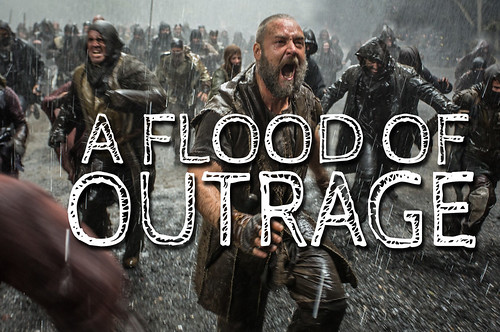Have you ever been to Auntie Anne’s Pretzels in your local mall? The next time you are there follow the delightful aroma of fresh baked pretzels and hot butter to their storefront and get a hot, fresh pretzel. If you watch the baker at each store you will see they measure, roll, and twist the dough to form a beautiful, perfect pretzel every time. On each counter in every Auntie Anne’s store you will notice a measuring line. The baker uses that line to measure the length and width of each piece of dough cut. There is also a pretzel shape drawn on the counter top that the baker uses to ensure that their pretzel, once twisted, matches all the others ready to be baked. It doesn’t matter if you are in LA or New York, every Auntie Anne’s Pretzel looks and tastes the same due to these measuring lines.
While making pretzels and determining the doctrine of Scripture are two entirely different things, they do share this idea of using a measuring line to determine consistency, create uniformity, identify mistakes, and define authenticity. The measuring line to identify, determine, and define Holy Scripture is called the canon of Scripture.
The Formation of the Canon
The canon of Scripture is the collection of writings that has been recognized as having divine authority over matters of faith and doctrine for the Church. Canon comes from two words meaning “a rule” or “measuring rod” (the Hebrew word qaneh and the Greek word kanon). Today, the canon of Scripture includes 66 books – the 39 books of the Hebrew Scriptures and the 27 books of the New Testament. The canon of the Hebrew Scriptures was largely in place by the time of Christ. These texts written between the fifteenth and fifth century B.C. are traditionally divided into three sections: Torah (the Law – Genesis, Exodus, Leviticus, Deuteronomy, and Numbers), Nevi’im (Prophets), and Ketuvim (Writings). Jesus and the writers of the New Testament “quote Old testament passages almost 300 times, and every quote is from the thirty-nine books that have been handed down to us.” 1
The 27 books of the New Testament canon were not finalized until the 4th century but the process of canonization started almost immediately as the church began. By the end of the 2nd century, Christians, facing persecution and requirement to burn their holy scriptures, had already begun making lists of writings that they considered authoritative and beneficial for church doctrines and practices. Books that were considered authoritative were believed to have been divinely inspired, written by Apostles or their companions, handed down and received by the church. 2
Scholar F.F. Bruce makes clear that these books are not considered authoritative because they are recognized as part of this canon, they are considered in the canon because they were recognized as divinely inspired by God and supremely authoritative for the Church.
One thing must be emphatically stated. The New Testament books did not become authoritative for the Church because they were formally included in a canonical list; on the contrary, the Church included them in her canon because she already regarded them as divinely inspired, recognizing their innate worth and generally apostolic authority, direct or indirect. The first ecclesiastical councils to classify the canonical books were both held in North Africa—at Hippo Regius in 393 and at Carthage in 397—but what these councils did was not to impose something new upon the Christian communities but to codify what was already the general practice of those communities. 3
The Doctrine of Scripture
While the church was able to experience growth in the face of external persecutions from Rome it was the internal fight against heresies that most threatened to tear the church apart. The Doctrine of Scripture was born out of this need to circle the wagons, not to protect the church from state sanctioned violence but, to circle the church around the truth of the Gospel and the true practices of God’s people. According to William J. Bennett, “the church’s settlement of what books were to be included in the New Testament canon proved to be one of the most powerful instruments for refuting heresy.” 4
Irenaeus, the first to coin the phrases Old Testament and New Testament, wrote a scathing description of the damage that heretics were doing and would continue to do to the church if left unchecked: “By transferring passages, and dressing them up anew, and making one thing out of another, they succeed in deluding many through their wickedness and in adapting the oracles of the Lord to their opinions.” 5
Whether it was the Gnostics enticing disciples to seek out the “secret knowledge” of the spiritual world or Marcion’s teaching that the OT God was not, could not be the Father of the NT Jesus and throwing out the OT altogether, these heresies and others like them were put down, largely in part, due to the formalization and recognition of the Doctrine of Scripture.
Translation
Translation played important part in the canonization of scripture starting with the original languages that scriptures are written in. Hebrew, Aramaic, and Greek are common languages of the people the scriptures are written by and to which they are directed. The Septuagint sought to bring the Hebrew scriptures to the Greek speaking world, thus giving access to the foundation of Christianity to Gentile delivers outside of the Hebrew people. One of the best examples in antiquity of how Greek and Hebrew translations can aid in the reading and understanding of the texts in their original languages stands Origen’s Hexpola:
Origen compiled the entire Old Testament and laid out in six columns (a) the original Hebrew text of the Old Testament; (b) the Hebrew language redone phonetically in Greek, so that readers of Greek could better comprehend Hebrew sounds, even if they didn’t read the language; and (c) four different translations of the Old Testament in Greek, including the Septuagint (the Greek translation of the Old Testament). 6
The theologian and historian Jerome went a step further than the Septuagint and translated scriptures into Latin, the common language of his time. This idea of translations taking a foreign language and bringing it to the people in a way that it can be understood and read leads directly into the significance of interpretation.
Interpretation
Once the Scriptures can be read, they must be synthesized into understanding and then applied to the lives of God’s people. Interpretation has played a huge role in, not just the canonization of which books to include in Holy Scriptures, but the “canonization” of church doctrines and practices. Mark Noll, in speaking about the history of interpretation says that “we may view the Christian past like a gigantic seminar where trusted friends, who have labored long to understand the Scriptures, hold forth in various corners of the room.” 7
Interpretations that have stood the test of time and impact the church today such as the Nicene Creed, discourses in Trinitarian theology, and the nature of Christ can be understood largely due to the work of those in early church history seeking to give God’s people the clearest understanding of God’s Word and Will. Many interpretations though failed to catch on, not because they were unpopular, but because they were weighed by the interpretive church community and found wanting. Heretics such as Marcion, Aries, and the Gnostics along with heresies such as the belief that Jesus had a human body and a lower soul but a divine mind (Apollinarism) were weeded out by the church and the church is, arguably, better for it. Noll sums up the great inheritance and gift we have received for these early interpreters saying:
If a contemporary believer wants to know the will of God as revealed in Scripture on any of these matters, or on thousands more, it is certainly prudent to study the Bible carefully for oneself. But it is just as prudent to look for help, to realize that the question I am bringing to Scripture has doubtless been asked before and will have been addressed by others who were at least as saintly as I am, at least as patient in pondering the written Word, and at least as knowledgeable about the human heart. 8
The Church universal owes a great deal to the early church and those who sacrificed time, talent, treasure, and their lives in order to identify, preserve, translate, and interpret Scripture. May we never think that we have reached the end of this process because generations, potentially millennia from now, will rely on how diligently and faithfully we undertake this responsibility.
Footnotes:
1. Rick Cornish. 5 Minute Theologian: Maximum Truth in Minimum Time (p. 63). NavPress, Colorado Springs, CO. 2004. Cornish also goes on to use the extra biblical witness of the Dead Seas Scrolls to highlight that the canon of the OT was in place before Christ saying, “Likewise, many of the five hundred Dead Sea Scrolls are commentaries and they comment only on books in our canon.”
2. Irenaeus, Against Heresies, 3.1.1-2.
3. F. F. Bruce, The New Testament Documents: Are They Reliable? (Grand Rapids, MI: Eerdmans, 1981), 22.
4. Bennett, William J. Tried by Fire: The Story of Christianity’s First Thousand Years (p. 35). Thomas Nelson.
5. Irenaeus, Against Heresies 1.8.
6. Bennett, William J. Tried by Fire: The Story of Christianity’s First Thousand Years (p. 77). Thomas Nelson.
7. Noll, Mark A. (2012-07-01). Turning Points: Decisive Moments in the History of Christianity (p. 6). Baker Publishing Group.
8. Ibid.



